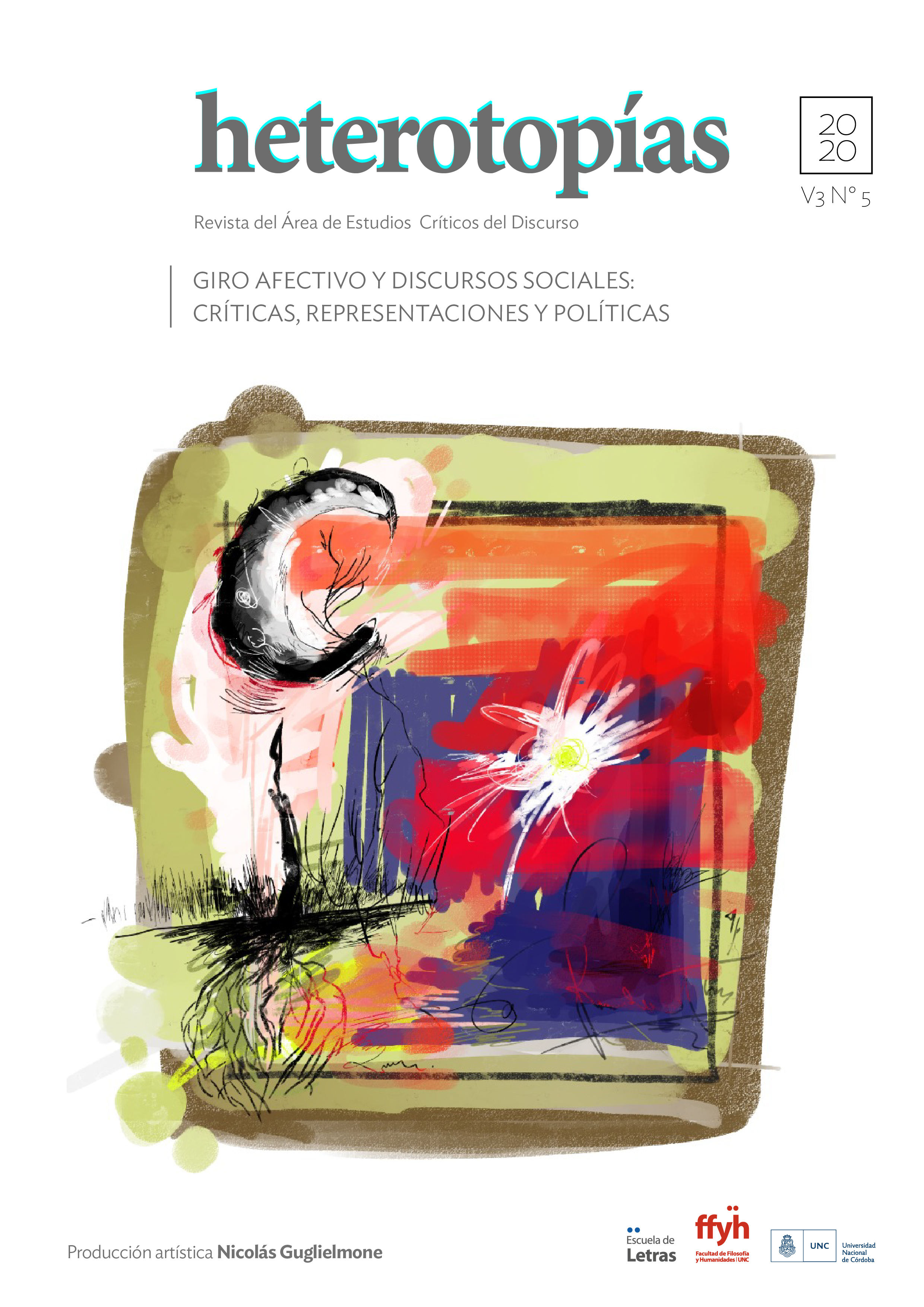Feeling brown, feeling down: latina affect, the performativity of race, and the depressive position
Main Article Content
Abstract
In this 2006 essay, theorist José Esteban Muñoz (1967-2013) addresses the problem of depression from a critical perspective, informed by gender and critical race studies. Discussing an installation work by artist Nao Bustamante, Muñoz draws on Melanie Klein’s concept of a depressive position, in connection with his own notion of brown feeling, in order to show “how depression itself is formed and organized around various historical and material contingencies that include race, gender, and sex”.
Downloads
Article Details

This work is licensed under a Creative Commons Attribution-NonCommercial-ShareAlike 4.0 International License.
Those authors who have publications with this journal, accept the following terms: Those authors who have publications with this journal, accept the following terms:
a. The authors will keep their copyright and guarantee to the journal the right of first publication of their work, which will be simultaneously subject to the Creative Commons Attribution - Non-Commercial - Share Alike (by-nc-sa) Attribution License; no commercial use of the original work or any derivative works is allowed, the distribution of which must be done with a license equal to the one that regulates the original work.
b. Authors may adopt other non-exclusive license agreements for the distribution of the published version of the work (e.g., deposit it in an institutional telematic archive or publish it in a monographic volume) provided that the initial publication in this journal is indicated.
c. Authors are allowed and recommended to disseminate their work through the Internet (e.g. in institutional telematic archives or on their website) before and during the submission process, which may lead to interesting exchanges and increase the number of citations of the published work. (See The effect of open access).
References
Ader, B. J. (1971). I Am Too Sad to Tell You [Video]. Producción independiente.
Bustamante, N. (2003). Neapolitan [Instalación]. Producción independiente. Video disponible en línea: vimeo.com/60283405.
Newton, H. (1995). Crying Glasses (An Aid to Melancholia) [Fotografía]. De la serie Connotation Performance. Presentada en Ikon Gallery, Birmingham, Reino Unido.
Bibliografía
Doyle, J. (2004). Critical Tears: Melodrama and Museums. En Baume, N. (Comp.). Getting Emotional (pp. 42-53). Boston: Institute of Contemporary Art.
Flatley, J. (2004). Reading into Henry James. Criticism, 46(1), 103-123.
Gramsci, A. (2000 [1975]). Cuadernos de la cárcel (6 tomos). México D.F./Puebla: Era/Benemérita.
Jameson, F. (1989 [1981]). Documentos de cultura, documentos de barbarie. La narrativa como acto socialmente simbólico. Madrid: Visor.
Klein, M. (2008 [1927]). Tendencias criminales en niños normales. En Amor, culpa y reparación. Obras completas 1 (pp. 178-192). Barcelona: Paidós.
Klein, M. (2008 [1935]). Contribuciones a la psicogénesis de los estados maníaco-depresivos. En Amor, culpa y reparación. Obras completas 1 (pp. 267-295). Barcelona: Paidós.
Klein, M. (2015 [1946]). Notas sobre algunos mecanismos esquizoides. En Envidia y gratitud y otros trabajos. Obras completas 3 (pp. 10-33). Barcelona: Paidós.
Kristeva, J. (2001). El genio femenino. II: Melanie Klein. Buenos Aires: Paidós.
Muñoz, J. E. (1999). Disidentifications. Queers of color and the Performance of Politics. Mineápolis: University of Minnesota Press.
Parker, A. y Sedgwick, E. K. (1995). Introduction: Performativity and Performance. En Parker, A. y Sedgwick, E. K. (Comps.). Performativity and Performance (pp. 1-18). Nueva York: Routledge.
Rodríguez, R. (2003). Brown. The Last Discovery of America. Nueva York: Penguin.
Sedgwick, E. K. (2018 [2003]). Tocar la fibra. Afecto, pedagogía, performatividad. Madrid: Alpuerto.
Spillers, H. (2003). “All the things you could be by now if Sigmund Freud’s wife was your mother”: Psychoanalysis and Race. En Black, White, and in Color. Essays on American Literature and Culture (pp. 376-428). Chicago: Chicago University Press.
Spivak, G. C. (2011 [1988]). ¿Puede hablar el subalterno? Buenos Aires: Cuenco de Plata.
Viego, A. (2003). The Unconscious of Latino/a Studies. Latino Studies, 1(3), 333-336.
Westbrook, L. (2003). Review. Artweek, 34(10), 14.
